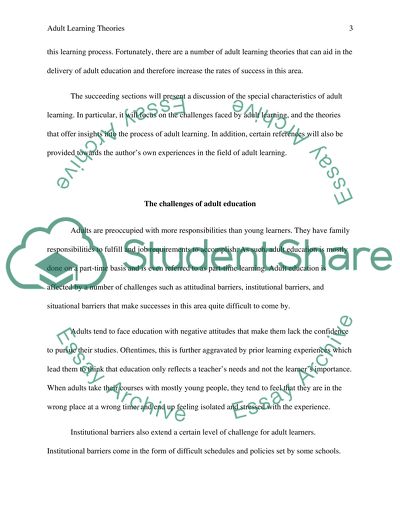Cite this document
(“Learning in adulthood Research Paper Example | Topics and Well Written Essays - 2000 words”, n.d.)
Retrieved from https://studentshare.org/education/1438669-learning-in-adulthood
Retrieved from https://studentshare.org/education/1438669-learning-in-adulthood
(Learning in Adulthood Research Paper Example | Topics and Well Written Essays - 2000 Words)
https://studentshare.org/education/1438669-learning-in-adulthood.
https://studentshare.org/education/1438669-learning-in-adulthood.
“Learning in Adulthood Research Paper Example | Topics and Well Written Essays - 2000 Words”, n.d. https://studentshare.org/education/1438669-learning-in-adulthood.


